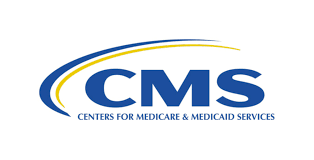On the heels of Governor DeSantis’ announcement that he is directing the Florida Department of Health to add Alzheimer’s disease and related types of dementia as a priority in the State Health Improvement Plan, the Alzheimer’s Association in Florida will join more than 1,000 advocates from around the country March 31 – April 2 in Washington, D.C. for the Alzheimer’s Association AIM Advocacy Forum. The Forum is the nation’s premier advocacy event to raise awareness and increase legislative support for policies that will improve the lives of 5.8 million Americans currently living with Alzheimer’s disease, including 560,000 individuals and their 1.1 million caregivers in Florida.
More than 80 advocates from across the state will convene March 31 – April 2 on Capitol Hill for meetings with federal legislators to discuss the real-life impact of legislative policies focused on providing researchers, healthcare professionals, caregivers and individuals with the educational tools and resources necessary to meaningfully combat Alzheimer’s disease. The Alzheimer’s Association advocates have scheduled meetings with every single member of congress representing Florida, including the two senators.
“When meeting with our legislators, I will emphasize that I am but one of the 560,000 Floridians who are fighting Alzheimer’s on the frontlines, every day,” said Brian LeBlanc, who was diagnosed with early-onset Alzheimer’s disease in 2014. “Our members of Congress have the opportunity to support their constituents and fellow Americans in this fight by funding research to uncover Alzheimer’s treatment breakthroughs and, one day, a cure; as well as by enhancing care and support services for people living with disease, like me.”
In particular, advocates will urge their members of Congress to support $350 million in federal funding for Alzheimer’s research at the National Institutes of Health (NIH), where — despite historic increases since the passage of the 2010 National Alzheimer’s Project Act — researchers report current funding falls far short of what’s needed to ensure the disease no longer ranks as the sixth leading cause of death in the U.S.
Advocates will also call on Congress to appropriate $20 million in FY20 to fund the Building Our Largest Dementia (BOLD) Infrastructure for Alzheimer’s Act (P.L. 115-406), the amount necessary to effectively implement the legislation which was signed into law on December 31, 2018. The BOLD Infrastructure for Alzheimer’s Act will create the much-needed public health infrastructure to implement effective Alzheimer’s interventions — including increasing early detection and diagnosis, reducing risk and preventing avoidable hospitalizations.
In addition to directing the Florida Department of Health to include Alzheimer’s in the State Health Improvement Plan, Governor DeSantis also directed the agency to apply to be a Center of Excellence under the BOLD Act.
“The BOLD Infrastructure for Alzheimer’s Act will establish Alzheimer’s Centers of Excellence to expand and promote effective Alzheimer’s interventions by providing state and local public health departments with the funding and resources needed to promote cognitive health and disease awareness, while also supporting the needs of caregivers and individuals living with the disease across Florida and the country,” explained Michelle Branham, vice president of public policy for the Alzheimer’s Association Florida region.
The CDC is preparing implementation of the BOLD Infrastructure for Alzheimer’s Act; however, determinations on awards for the Centers of Excellence and grants to public health departments cannot happen until the Centers receive the FY20 funds appropriated by Congress.
In the meantime, Alzheimer’s remains the most expensive disease in America, with costs set skyrocket in the years ahead. In 2019, the total payments for caring for Americans aged 65 and older with Alzheimer’s or other dementias will surpass a quarter of a trillion dollars ($290 billion).
Equally devastating is Alzheimer’s financial toll on individuals, and to the country. Alzheimer’s is the most expensive disease in the country, costing an estimated $290 billion in 2019 alone. Collectively, Medicare and Medicaid are expected to cover $195 billion ($146 billion and $49 billion respectively), or 67 percent, of the total health care and long-term care payments for people with Alzheimer’s and other dementias. This represents an increase of $9 billion from last year. This also means Alzheimer’s costs taxpayers in more than $22 million every hour.
“Unless Congress moves quickly to support researchers in finding—and communities in providing—better treatments, these costs will continue to grow along with the number Americans affected, and Alzheimer’s will increasingly overwhelm our health care system,” said LeBlanc. “Now more than ever, we must advocate to ensure Alzheimer’s remains a public-health priority for our elected officials, both in Washington and around the country.”
To learn more about the Alzheimer’s Association AIM Advocacy Forum, please visit alz.org/forum.
About the Alzheimer’s Association
The Alzheimer’s Association is the leading voluntary health organization in Alzheimer’s care, support and research. Our mission is to eliminate Alzheimer’s disease through the advancement of research; to provide and enhance care and support for all affected; and to reduce the risk of dementia through the promotion of brain health. Our vision is a world without Alzheimer’s ®. Visit alz.org or call 800.272.3900.

























